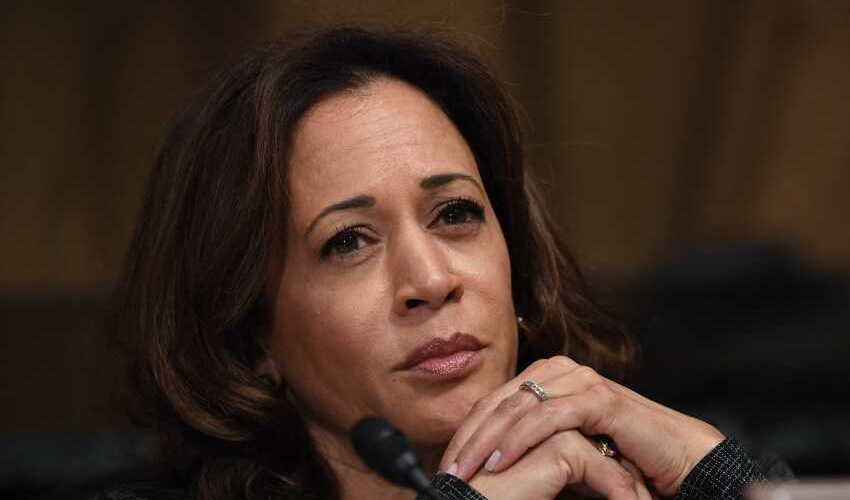Kamala Harris's loss in the 2024 United States presidential election has made a stir across American political circles as commentators and experts ponder the further consequences of her defeat. Firstly, she was the first woman, second Black person, and first South Asian to seriously run for president.
It was not her historic bid or an impressive political resume that left former President Donald Trump to stand victorious over Senator Kamala Harris. For many, the outcome leaves difficult questions about race, gender, political polarization, and disillusioned voters in the U.S.
Race and gender in Harris's defeat
For many political pundits, Harris's loss was not merely because of her political stands or campaign strategies but was intricately tied to her race and gender. The two factors, long cited as barriers in American politics, continue to be critical influencers behind the scenes of public perception and voting behavior.
Public opinion researcher Tresa Undem, who specializes in gender issues, said that race and gender were the dominant forces in the 2024 election. "The largest underlying dynamic in American politics today is attitudes toward race, attitudes toward gender," she said. Harris, like Hillary Clinton four years ago, was at a two-fold disadvantage: sexism weighed heavy, combined with racism.
Experts, including Undem, predicted a "tsunami of backlash" from Republican voters, but also potentially among Democratic voters, about Harris's decision-making as leader and candidate.
Harris's loss could take another turn along the lines of Clinton's loss by saying she is unable to win based on her race and gender, creating a conversation regarding whether America is ready to elect a woman of color to the highest office in the land.
Déjà Vu for 2016 Clinton loss
Many commentators made the comparison between Harris's loss and Hillary Clinton's a year ago, viewing both as highly qualified women running historic campaigns but who were subject to intense scrutiny and gendered attacks. In each case, their opponents, the Donald Trump and supporters of Donald Trump, utilized divisive rhetoric to fuel racist and sexist sentiments. Trump's constant insulting remarks about Harris, referring to her as "low IQ" and "mentally disabled," was a repetition of what had been done to Clinton, reinforcing deep-seated challenges women face in U.S. politics.
According to Boston University professor Tammy Vigil, the 2024 election demonstrated how far the United States had to go in terms of sex and race relations. "This loss indicates we still have so much more work to do here in the US in terms of sex and race relations," she said. Trump, Vigil noted, had "afforded people the ability to be their worst selves," amplifying the racist and sexist sentiments that have long existed in American society.
For Nadia Brown, Director of Women's and Gender Studies Programme at Georgetown University, Trump's victory reminded her of the deepening racism and white hetero-patriarchy in America's politics. Brown pointed out that Harris had superb qualifications and experience, that her ability to serve the country as president from day one should have been beyond dispute. However, levels of vitriol hurled in her direction by Trump and all his supporters revealed a dark undercurrent of racial and gender prejudice.
Intersection of sexism and racism
Political science Andra Gillespie conceded that while Harris's candidacy in many ways was unparalleled, she was far from being the first politician to contend with such race and gender headwinds. Barack Obama, for one, and Hillary Clinton faced these same winds too. In the case of Harris, though, this happened in a double whammy: "It's doubly hard for Harris because of the combined force of misogyny and racism," Gillespie said.
However, Harris's being a woman of color running for the presidency perhaps highlighted some complexities of American identity politics, especially because Obama had to deal with racial questions highly provocative, and Clinton was subject to sexism. Thus, Harris's political identity brought both concerns into sharp relief, to the point that, according to some analysts, her candidacy depicted a "racially tinged" sexism, making it very difficult to run.
Disillusionment with democratic party
Beyond the issue of her qualifications on race and gender, Harris's loss also points to broader frustration with the Democratic Party and its inability to connect with key constituencies. Analysts noted that the stance Harris took on international issues -- most notably her embracing of Israel during the Gaza war -- cost her crucial parts of her base: Arab Americans and Muslim voters. This intra-party dynamic was just one reason she lost the election.
Dalia Mogahed, the former research director at the Institute for Social Policy and Understanding, said that Harris's pro-Israel stance could be her election loser. "It's the candidate that should be earning people's votes, not feeling entitled to them," Mogahed said, highlighting voters, mostly from the marginalized communities, looked at policies with their concerns in mind. And so, when she failed to address these concerns—especially regarding the humanitarian situation in Gaza—these ultimately became rallying points for her detractors.
Palestinian American community organizer Rasha Mubarak echoed the criticism, declaring that the Democratic Party is not listening to the needs of its base. "The Democratic Party continues to fail in listening to their voters," she lamented, using her examples on the under-resourced communities as well as the issue of the Israel-Palestine conflict as unable to get meaningful action.
Lessons for democratic party
Political analysts now remind the Democratic Party to contemplate its mistakes and reassess its strategy for elections. The party should examine its failure in reaching crucial demographics: non-college-educated white men and rural Republican-leaning voters, said Mike Nellis, an adviser to the Harris campaign. "We have to be mobilizing to fight back and try to stop some of the worst things that Trump is going to want to do," Nellis said.
Even more seriously, though, Nellis asked for a comprehensive approach in reclaiming the disenfranchised voters. He called for a "serious conversation" on how to re-engage communities feeling unconnected to the political class. If not done so, they will just perpetuate the same errors the next time around.
What's Next? The Future
The defeat of Kamala Harris sparks a fear that the United States might experience an even more polarized and explosive political atmosphere in a possible second Trump term. According to political analysts, when Trump was elected in 2016, it sparked a wave of the Women's March along with many other protests, and thus, this cycle is going to much better this time around.
They are exhausted. They are burned out, Georgetown's Brown said of many of the most reliable Democratic voters, many of them Black women. The fear of political repression under a second Trump administration is extensive, with a sense of futility pervasive among many progressives-meaning that big protests won't materialize to nearly the same degree as they did after Trump's first victory.
The question of the next few years will be how America approaches the deep-seated racism and sexism that defined Harris's campaign-and, in the end, the trouncing of that campaign. Certainly, it was a blow to those hoping for a more inclusive and progressive set of futures, but it was one shepherded starkly home: the fight for racial and gender equity in the United States is far from won.
Kamala Harris was a landmark moment in the evolution of American politics - at turns cautionary tale and clarion call for the rest of us to challenge entrenched systems of power and privilege that continue to shape this nation's political landscape.



























